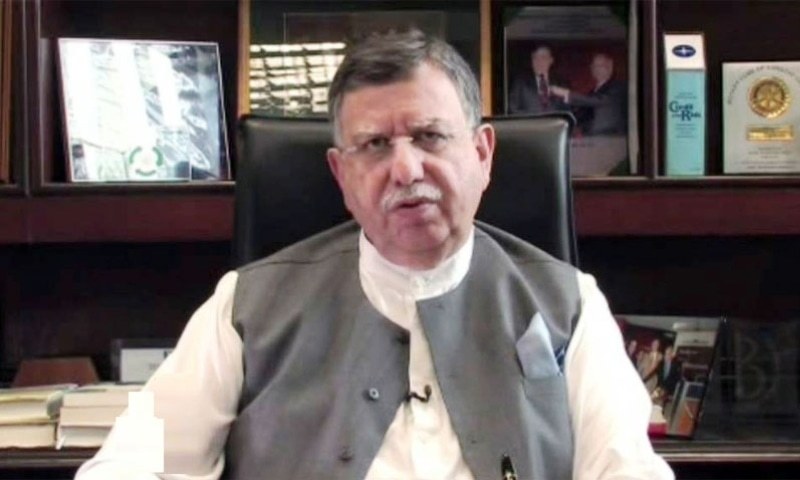ISLAMABAD: Finance Minister Shaukat Tarin on Monday said the government will announce a growth-oriented and business-friendly budget for 2021-22, provide relief to the common man and encourage self-assessment and incentivise businessmen and traders to pay taxes in line with best international practices.
Mr Tarin was speaking at a pre-budget consultative meeting with representatives of Pakistan Business Council (PBC), Pak-US Business Council (PUBC), Overseas Investment Chamber of Commerce and Industry (OICCI) and Federation of Pakistan Chambers of Commerce and Industry (FPCCI) through a video link.
Commerce Adviser Abdul Razak Dawood, SAPM on Finance and Revenue Dr Waqar Masood Khan, Federal Board of Revenue (FBR) Chairman Asim Ahmed and his team also participated in the meeting.
Promises incentives for businesses, relief for common man
The business delegations generally wanted fundamental reforms in the taxation regime that should lead to sustainable growth of both the country and its tax revenues and suggested these would depend on the political will to pursue those outside the tax net and the FBR’s capability and capacity to implement.
The PBC proposed that taxes should be simple, predictable and supportive of business growth and the formalisation of the economy and hence the aim should be for higher tax revenues to flow from the combination of improved profitability of existing taxpayers and from broadening of the tax base.
It argued that the industry was presently contributing taxes disproportionate to its share to GDP and must be facilitated to create more jobs, boost value-added exports and promote import substitution.
“The impact of taxes on manufacturing vs commercial importers should be reviewed”, it said, adding the FBR and the formal sector should work in partnership to broaden the tax base and the earlier tax credit to encourage taxpayers to transact with the formal sector should be revived.
The big businesses also called for mining the vast amount of information on non-taxpayers provided by withholding agents and higher advance taxes should be levied on utility bills of non-tax filers.
At the same time, corporate entities, especially those listed, which operate to a higher standard of governance and accountability and their shareholders must not be penalised in comparison to unincorporated entities and their owners, otherwise the incentive to incorporate will be undermined.
There were also suggestions for providing a level playing field in the holding periods for capital gains tax on sale of company shares vs real estate.
Mr Tarin assured the business groups that most of their proposals were already on priority of the government which firmly believed in a pro-people budget by following a consultative process with all stakeholders on board. The underlying rationale was to achieve an all-inclusive sustainable economic growth by seeking valuable input from investors, traders and business community.
He told the business groups that Pakistan has witnessed V-shape recovery amid pandemic due to prudent economic policies.
The government has identified 12 sectors, under the banner of Economic Advisory Council (EAC), to formulate short, medium and long-term strategies to achieve an inclusive sustainable economic growth and social development with special focus on agriculture, housing, exports and revenue mobilisation.
The minister said the upcoming budget envisaged maximum relief to the common man and hence will come up with innovative out-of-the-box alternatives to achieve the revenue targets, by providing incentives and facilities, besides broadening the tax base rather than new taxes.
There will be no regressive taxation and stern action will be taken against tax evaders, he added.
He said the recovery was mainly supported by government’s incentives and policies for construction and manufacturing sectors, but the smart and micro lockdowns during the third wave had posed new challenges.
He said the government was pursuing a strategy to achieve robust economic growth to benefit under-privileged and middle class for ensuring equal distribution of economic gains across all segments of society.
Published in Dawn, May 25th, 2021












































